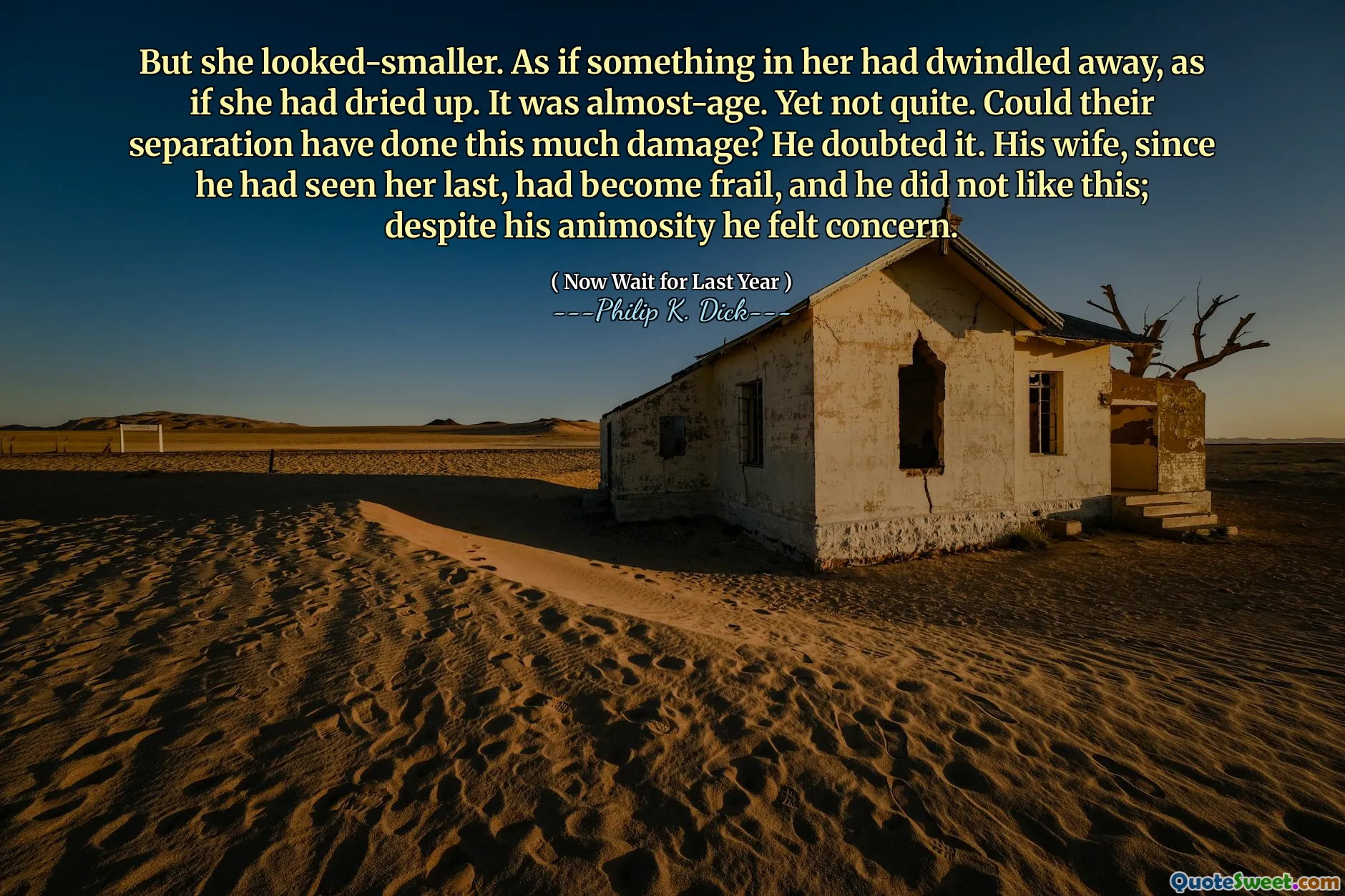
But she looked-smaller. As if something in her had dwindled away, as if she had dried up. It was almost-age. Yet not quite. Could their separation have done this much damage? He doubted it. His wife, since he had seen her last, had become frail, and he did not like this; despite his animosity he felt concern.
In Philip K. Dick's "Now Wait for Last Year," the narrator reflects on the deteriorating state of his wife upon seeing her again after a time apart. He notices her physical fragility and perceives a change that suggests she has lost vitality, almost like she has aged prematurely. This observation triggers a mix of emotions within him, revealing his complex feelings towards her. Despite any animosity, concern for her wellbeing emerges as he grapples with the impact of their separation.
The narrator questions whether the distance between them could have led to such a significant decline in her condition. While he is doubtful about the extent of the damage caused by their time apart, he cannot ignore the signs of her frailty. This moment of reflection highlights the deeper themes of relationships and the toll that separation can take on individuals, revealing a poignant blend of emotional conflict and concern in his response to her changed state.











